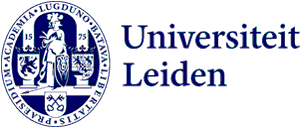
Finding our way out of the hyper-nervous society? ‘Time to pause and reflect on our basic human needs’
Hit the brakes! That’s the advice of the Council for Public Health and Society in a recent report. Life in an individualistic, achievement-driven society is putting the mental health of the Dutch population under pressure, the council argues. Eight psychologists share their insights on how to slow down and reconnect.
‘You shouldn’t need a mindfulness certificate to be able to cope with life,’ says psychiatrist Floortje Scheepers in an interview with Dutch newspaper NRC. Scheepers contributed to the advisory report Hit the brakes! – Beyond the hyper-nervous society by the Council for Public Health and Society, published on 29 September and widely discussed since – in offices, kitchens and talk shows alike.
According to the report’s authors, the responsibility for becoming more resilient and stress-resistant is wrongly placed on the individual. Instead, major social and cultural changes are needed to improve mental health collectively. Their guiding principle: slowing down, connecting and embracing diversity. But what does that actually look like? And how can insights from psychology contribute to this societal shift?

‘It’s as if being human isn’t enough anymore’
‘We live in a time where we’re constantly confronted with the fact that anything is possible. I see both my students and my clients feeling overwhelmed by the sheer number of possibilities in every area of life. They work themselves to exhaustion trying to keep all the balls in the air. The idea that everything can be done seems to create the feeling that everything must be done. The result is that we live in a constant state of feeling inadequate.
‘We need to shift from human do-ing back to human be-ing. Our society is set up in such a way that we are constantly encouraged to “be the best version of ourselves”. Conditional love. It’s as if simply being human isn’t already enough. We live in a mindset of “only when I have or do X, then I’ll be good enough”. In that endless pursuit of being “good enough”, we lose ourselves. And we see our symptoms as enemies instead of messengers.
‘All day long we’re triggered by our phones – without learning how to deal with silence, with our inner world, with feelings of uncertainty and pain, with making choices. It’s important to realise that our most precious possession is our attention. Our presence in the now – because life is always happening now. Before you know it, you’ve rushed through your life without truly experiencing it. We can only experience when we slow down. When we do one thing at a time. When we take the time to get to know our inner world, so that unconscious patterns no longer run our lives.
‘When we connect with ourselves, we can then connect with the people around us. Saying hello to a passer-by. Striking up a conversation on the train. Allowing ourselves to be vulnerable with friends and loved ones. Then we start to see that, deep down, we’re all incredibly alike. We’re all doing our best. And we can remind each other that that’s good enough
Jolie Fraiquin, lecturer in the Psychology programme & holistic psychologist
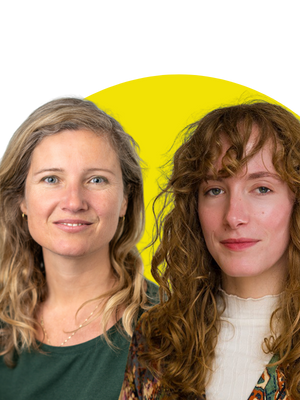
‘People may want to go faster, but there are signs that our bodies struggle to keep up’
‘Our research doesn’t focus specifically on mental health, but on lifestyle – particularly eating behaviour. Yet the observations and recommendations from the report align closely with our own findings.
‘Even within lifestyle research, there is still a strong emphasis on changing individual behaviour to promote healthier eating, while the influence of the social and societal context receives far less attention.
‘Our work focuses precisely on that context: we look not only at what people eat, but also how they eat. Time and again, we find that in the vast majority of eating and drinking occasions, people are simultaneously engaged in something else. As a result, they taste less, their motivation to eat responds less to feelings of satiety and they are more likely to eat again (and more) later on. We also observe a positive correlation between distracted eating and BMI.
‘You might ask why people devote less time and attention to their meals. Is it due to the constant digital stimuli? Or because eating is increasingly viewed as something functional – a way to sustain performance – rather than as a moment to enjoy and slow down? People may want to go faster and do more, and even believe they can, but there are indications that our bodies struggle to keep pace.
‘Finally, we see great value in the report’s recommendation to make room for slowing down and connecting. Not every distraction has negative effects – talking with others, for example, is an exception. When people eat together, they tend to make more of an occasion of it, take more time and are more likely to sit down to a home-cooked meal.’
Lotte van Dillen, Professor of Social Psychology, and Marina Hanssen, PhD candidate in Social, Economic and Organisational Psychology
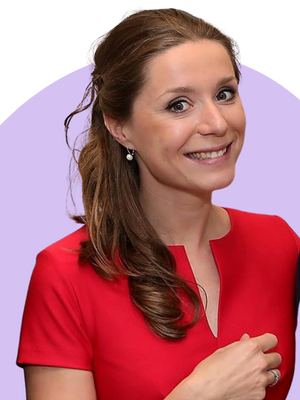
‘In a society full of stimuli, we’ve sometimes become walking heads’
‘The report rightly emphasises that the mental health of the Dutch population is under pressure. Scientific research –including my own – convincingly shows that sufficient physical activity, particularly in one’s leisure time, can help prevent and reduce mental health problems.
‘According to the report’s authors, the key values for strengthening mental health at a societal level are slowing down, connecting, and embracing diversity. Physical activity fits perfectly with these principles. Although the body speeds up, the mind actually slows down – creating space for reflection, calm and creativity. In a society overloaded with stimuli, where we spend much of our time sitting, we’ve sometimes become “walking heads”. Movement helps us regain control over that overstimulation.
‘Moreover, moving together fosters social connection and allows for diversity – whether it’s a walk with a friend, playing sports in a club or training at the gym among like-minded people.
‘At the same time, I agree with the report that a structural approach to mental health is essential. When faced with systemic problems such as housing shortages, job insecurity, poor working conditions, or the pressure of caregiving, physical activity is merely a temporary fix. Even when it comes to exercise, we too often place the responsibility on the individual, while the environment plays a crucial role — think of safe neighbourhoods, sufficient physical education at school, green spaces and a culture where movement, rather than sitting, is the norm.’
Juriena de Vries, Assistant Professor of Health, Medical and Neuropsychology
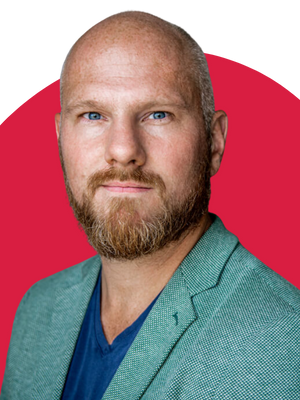
‘What is it that we really want?’
‘We’re a bundle of nerves. Overstimulated, exhausted by all the “musts” and the constant sense of “right now”, according to the advisory report by the Council for Public Health & Society (RVS). It’s time to hit the brakes. But what does that actually mean – to “hit the brakes”? From my research on stress, I’d like to add one insight.
‘Research on other species shows that calming the stress response requires more than simply removing threat, pressure or danger. Even when no predators are around, animals become stressed if they can’t preen their wings (to be ready to fly away), if there’s no shelter nearby (to hide) or if they’re unable to “do what they naturally do” (climbing, digging or foraging). In other words, animals need a certain environment in order to fully relax – to apply the brakes. These are their non-negotiable needs: the basic requirements of a species that must be met to promote animal wellbeing. This understanding is used to improve the welfare of animals in captivity.
‘The report paints a picture of the individualised human, trapped and lonely – like a “rat in a cage” – challenging one another in an exhausting rat race. It’s time, then, to slow down and reflect on what our human basic needs are. What should we really want?
‘The scientific literature offers a fragmented picture so far. What is often mentioned: feeling connected to others (also highlighted in the RVS report), feeling autonomous and feeling competent. Maslow’s hierarchy of needs is also frequently cited, with its emphasis on food, shelter and safety. Or take neuroscientist Jaak Panksepp’s work, which identifies needs such as play, exploration and caring for others.
‘What I find missing, however, are the needs related to our living environment. Together with colleagues, I’ve therefore emphasised the need for a natural, green environment – which we also know helps to dampen the stress response. In short, I believe it’s time for scientists from these various research areas to connect and jointly explore what human wellbeing truly entails – ultimately helping policymakers to see the wood for the trees again.’
Bart Verkuil, Associate Professor of Clinical Psychology
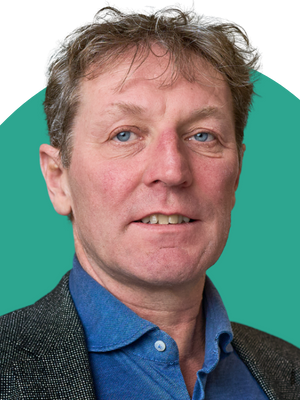
‘Visit spaces that are kind to the neglected brain networks’
‘There are many forces that push or pull scientific staff into a rat race. To deal with this, I would recommend minding the locus of control. Be aware of the control that you have, rather than treating all that happens to you as inevitable. The workplace provides quite some freedom to shape your daily life and unwind. Make use of this. Dare to daydream. Take time for lunch, coffee etc.
‘In terms of physical space, taking a walk outside is an excellent way to clear the mind. Make a habit of visiting spaces that are kind to the neglected brain networks, whether this is a dedicated meditation/prayer room, your third-hand couch or your department’s cosy “common room”.
‘Administrative burden can keep your attention occupied and may seem hard to reduce, but don’t forget that we have various committees that can help to smoothen the way we work.
‘Furthermore, some of the pressure comes from society, supervisors or social media, but some also comes from within. Keep ambitions and sense of responsibility healthy and realistic. If you feel pressed, discuss it with your supervisor(s). It should always be possible to find a sustainable balance between work, private life and mental health.’
Guido Band, Associate Professor at the unit of Cognitive Psychology
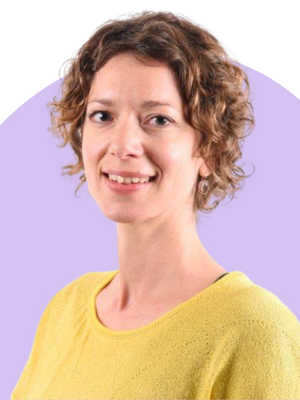
‘Let’s strengthen social and system-related connections’
‘The recent Op de REM report by the Dutch Council for Public Health and Society (RVS) emphasises that mental health issues such as stress, performance pressure, depression and burnout are not merely an individual responsibility. Notably – as highlighted in a related article by Dutch newspaper Trouw – “social anxieties” were also included in this list, a problem that is particularly common among youth (for instance, the rise in phone call anxiety). The Op de REM report calls, among other things, for more focus on and space for connection.
‘As a researcher of youth social anxiety, I see two crucial forms of connection that can help young people:
‘Connection with others: Young people with social anxiety often avoid group settings, even though group interventions are shown to be effective. In our own studies, we see that when young people practice engaging in social situations in a group context, they gain confidence and their anxiety decreases. By practising together, sharing experiences and supporting one another, they develop both a stronger sense of belonging and greater self-efficacy in social situations.
‘Connection between education and youth care: Schools can play a key role in the early detection and referral of anxiety and stress-related issues. Our research shows that when teachers are well-trained and can liaise directly with mental health care professionals, young people receive help more quickly and effectively. This prevents escalation, such as dropping out of school or developing additional psychological problems. It is also vital that young people themselves have a say in what kind of support they need, and that schools receive guidance in selecting evidence-based group interventions.
‘So let’s strengthen connection — both among young people themselves and between education and youth care. Achieving this requires more knowledge. We need research that reveals what works, for whom, and under what circumstances. This calls for close collaboration between science and practice, with sufficient financial support to develop effective (preventive) interventions.
‘If you’re interested in working together on this, feel free to get in touch via ACMiers@FSW.leidenuniv.nl.’
Anne Miers, Associate Professor in Developmental and School Psychology
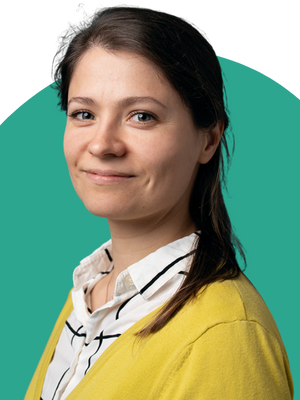
‘Our focus on individualism and performance also lie at the heart of the planetary mess we’ve gotten ourselves into’
‘This report hits the nail on the head: it does not just diagnose symptoms but connects them to deeper values – our focus on individualism, competition and ultimately performance and continuous (economic) growth. These not only affect our mental health and social sustainability, as described in this report, but also lie at the heart of the planetary-scale mess we’ve gotten ourselves into. I wonder if the authors would have connected mental health and social sustainability to the connected issue of sustainable living on a finite planet, if they had gone a level deeper.
‘Most importantly, it doesn’t have to be this way – we mostly do these things to ourselves and to each other. As David Graeber noted: “The ultimate, hidden truth of the world is that it is something that we make, and could just as easily make differently.” I’ve found that speaking up to discuss our values and agency is often liberating, and can spark new practices and mindset that helps us address issues both at the individual and systemic level.
‘So what do we do as scientists? Our universities inherit many of the problems and challenges of broader trends – we are only a small part of society, after all. Op top of that, some issues but also potential solutions are specific to academia (such as “publish or perish” culture). I’ve written about ways in which many issues in academia are more connected than they may seem: failures to have a healthy work-life balance or speak up freely in a department also impede creative, open and relevant science. If you’re not sure where to start, you could consider a journal club or workshop along these lines.
‘The book The Slow Professor by Berg & Seeber applies principles from the Slow movement to academic life, and led to lively discussions during a recent book club we organised with Young Academy Leiden (see discussion questions here). Inspired by this book, I for instance host several writing weeks per year, I set daily times where I block my email and socials, and I often take walks with colleagues to talk and share ideas. I have also found it helpful to take my work very seriously, but myself much less so.
‘If you’re interested in further (slow) reading and thinking on these topics, I can strongly recommend the books Saving Time by Jenny Odell, Four Thousand Weeks by Oliver Burkeman and Thinking in Systems by Donella Meadows. And come see me anytime for a slow walk to discuss these ideas!’
Anne Urai, Assistant Professor in Cognitive Psychology
